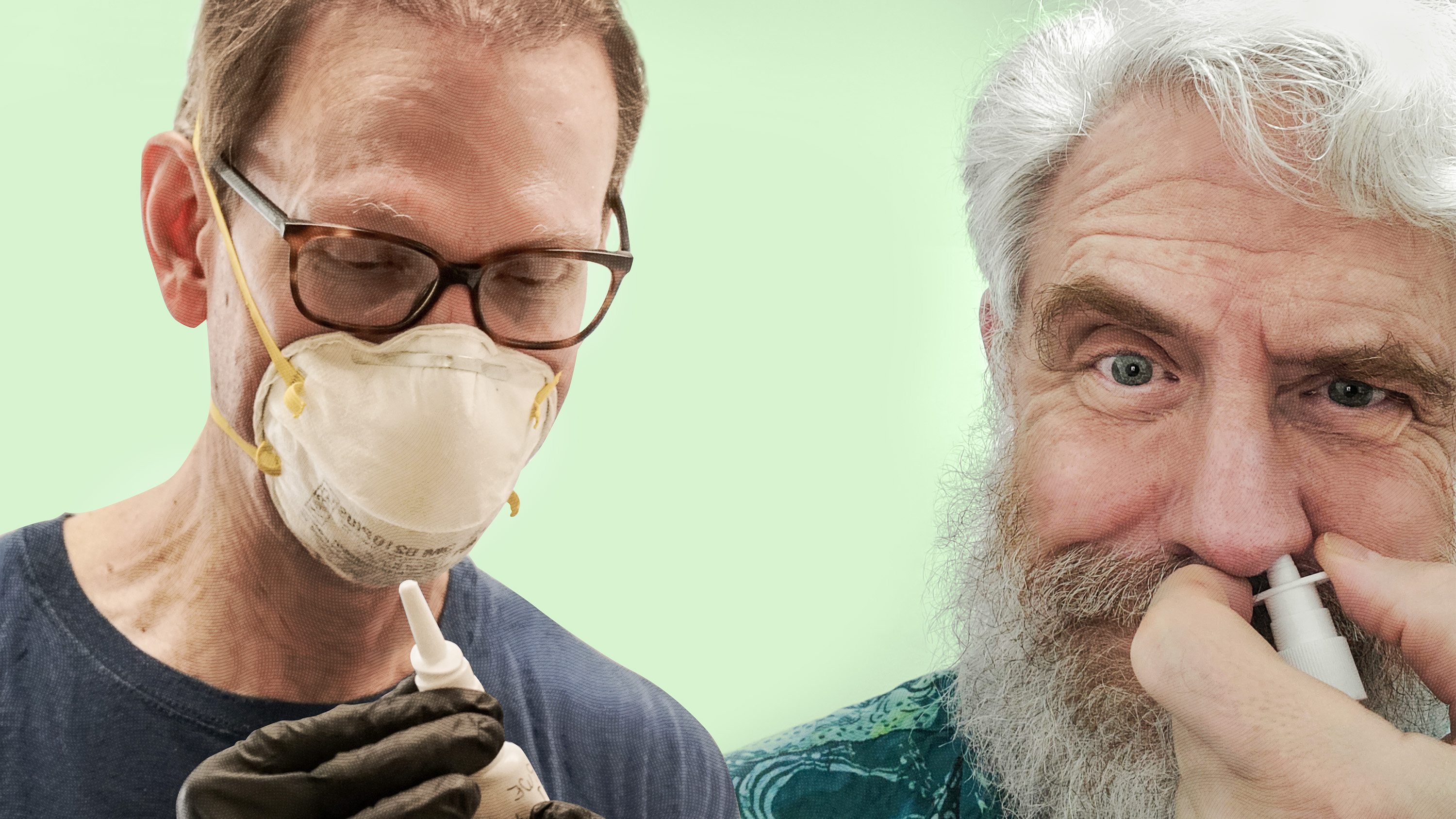.
S O U R C E : M I T Technology Review

Famed geneticist George Church and at least 20 others didn’t want to wait for the results of clinical trials: “I think we are at much bigger risk from covid.”
Edited by Engadin, 29 July 2020 - 03:58 PM.

Posted 29 July 2020 - 03:57 PM
.
S O U R C E : M I T Technology Review

Famed geneticist George Church and at least 20 others didn’t want to wait for the results of clinical trials: “I think we are at much bigger risk from covid.”
Edited by Engadin, 29 July 2020 - 03:58 PM.
Posted 30 July 2020 - 12:50 AM
Probably 50+ years ago this sort of self experimentation was more mainstream amongst researchers. The guy that did the first heart cath did it on himself under a local. Jonas Salk famously tested his polio vaccine on himself and his family.
There are a few modern examples. The doctor that theorized that helicobacter pylori caused stomach ulcers (and was soundly ridiculed for it) swallowed h. pylori to see if he would get an ulcer. He did and then cured himself with a course of antibiotics. But as drug development and approval has gotten much more .... legalistic .... with the FDA since the 1960s, it has become increasingly rare and we've seemed to just accept it as normal to take a decade or more to test and approve a drug. It's just the way things are done after all.
So I applaud these researchers. This is getting back to the roots of medical science and hopefully one day this will help break the log jam that has been allowed to occur due to the FDA's bureaucracy.
I hope when we get past this and get a working vaccine out in a year or so people will start to ask ..... "Now exactly why did it normally take a decade to develop and approve a vaccine?"
Posted 07 August 2020 - 04:48 AM
I would be concerned about antibody mediated enhancement which they briefly mention at the very end. Some antibodies can bind the virus in such a way they enhance infection. I would want to be sure that the vaccine I take does not cause the production of those kinds of antibodies.
https://www.nature.c...1587-020-0577-1
Posted 08 August 2020 - 04:26 AM
I would be concerned about antibody mediated enhancement
Yes, that's the main reason I'm not doing this. I know how to fairly easily get all the components but it seems too risky without any trials.
Round Table Discussion →
Risks & Survival →
COVID →
Pfizer Hires Top FDA Official Just Weeks After She Leaves AgencyStarted by Daniel Cooper , 27 Feb 2025 |
|

|
||
Round Table Discussion →
Risks & Survival →
COVID →
Help Me Obi-Wan: The Mysterious/Mythical Zinc Sulfate?Started by Dorian Grey , 01 Dec 2024 |
|

|
||
Round Table Discussion →
Risks & Survival →
COVID →
Polio vaccine booster more effective than COVID vaccine (if you had Oral Polio Vaccine as a child).Started by smithx , 06 Aug 2024 |
|

|
||
Round Table Discussion →
Risks & Survival →
COVID →
ArtemisininStarted by joesixpack , 05 Jun 2024 |
|

|
||
Round Table Discussion →
Risks & Survival →
COVID →
COVID-19 pandemic: the aftermathStarted by Galaxyshock , 14 Mar 2024 |
|

|
0 members, 1 guests, 0 anonymous users